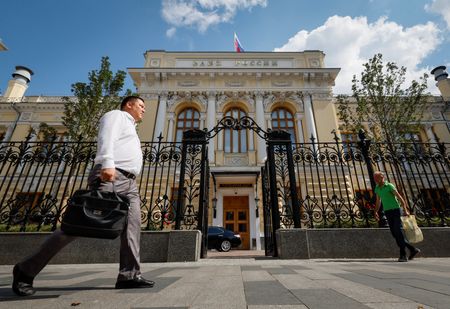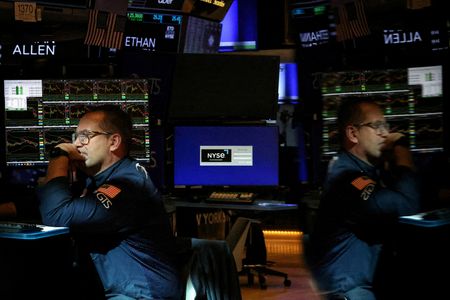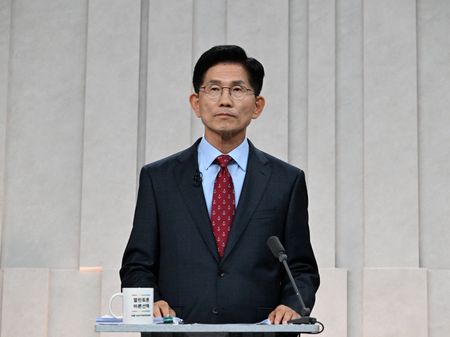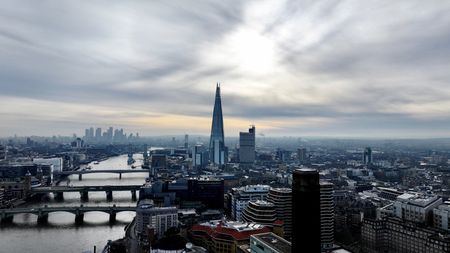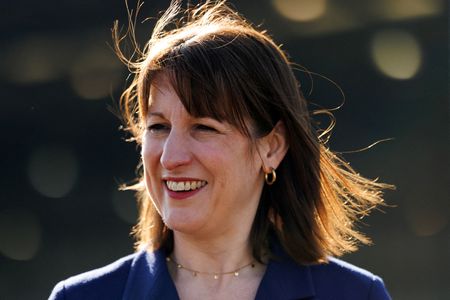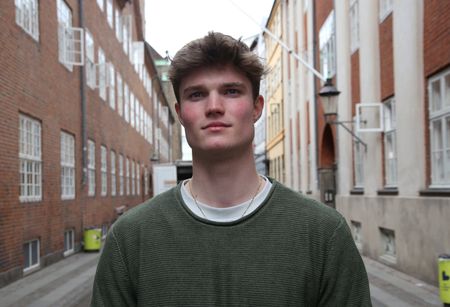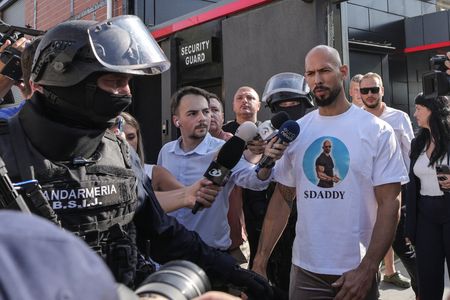By Elena Fabrichnaya and Gleb Bryanski
MOSCOW (Reuters) -The Russian central bank kept its benchmark interest rate on hold at 21% at a board meeting on Friday as the rouble and stock market rallied after a phone call between U.S. President Donald Trump and Russian President Vladimir Putin.
The central bank hiked the key rate to 21% last October to fight inflation, which reached 9.5% in 2024. The move prompted strong criticism from businesses, which complained that high interest rates are stifling the economy.
The central bank raised its inflation forecast for 2025 to 7.0–8.0% from 4.5-5.0% earlier, saying that inflation will return to its target rate of 4.0% in 2026 and “stay at the target further on”.
“Over the medium-term horizon, the balance of inflation risks is still tilted to the upside,” the regulator said. It also raised the 2025 growth forecast by half of a percentage point to 1.0-2.0%.
Russia was hit by Western sanctions after Moscow launched its military action in Ukraine, which hammered its assets.
The central bank’s governor Elvira Nabiullina, speaking at a news conference after the board meeting, said it was premature to take into account any chances of a peaceful settlement in Ukraine.
The rouble has strengthened by about 20% since the start of the year on market optimism about potential talks between Russia and the U.S. A stronger rouble will help the regulator contain inflation.
“The strengthening of the rouble, as I have already mentioned, if it proves to be sustainable, is a disinflationary factor, and we will take it into account among other factors,” Nabiullina said.
Russian Prime Minister Mikhail Mishustin told President Vladimir Putin last week that high inflation is the key challenge for the Russian economy in 2025.
The central bank said weekly data so far for 2025 showed that price growth rates have decreased slightly as compared to December 2024 but remain high.
DISTANT QUESTION
The decision to keep the rate on hold was in line with a Reuters poll of 24 analysts. The central bank did not mention the rouble’s sharp appreciation in its statement but noted the “cooling of lending activity” among factors behind the decision.
Nabiullina said the regulator did not see a risk of a wave of corporate bankruptcies due to high market interest rates, arguing that higher costs for companies were more linked to high inflation than to the central bank’s key rate.
She warned that international trade wars could stall global economic growth, leading to a reduced demand for Russian exports.
Analysts noted that in updated forecasts for 2025 the central bank raised the average key rate estimate during the year to 19-22% from 17-20%, suggesting there was a still possibility for a rate hike later this year.
“This means that the central bank, even in the baseline scenario, allows for another rate increase. As for its reduction, that is a very distant question, possibly in the fourth quarter,” said economist Evgeny Kogan.
The regulator surprised markets at its last rate-setting meeting in December by unexpectedly keeping the key rate on hold, after raising it to the highest level since the early 2000s earlier in the year.
The central bank will hold its next rate-setting meeting on March 21. It said it expected inflationary pressures to gradually decline in the coming months due to reduced lending and increased saving.
(Reporting by Elena Fabrichnaya and Gleb Bryanski; Editing by Sharon Singleton, Toby Chopra and Christina Fincher)

